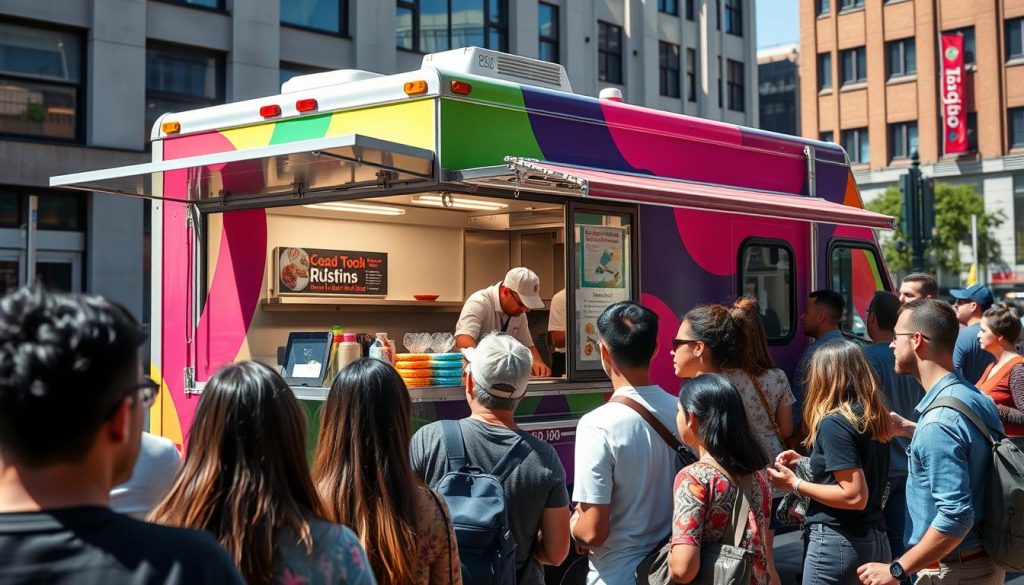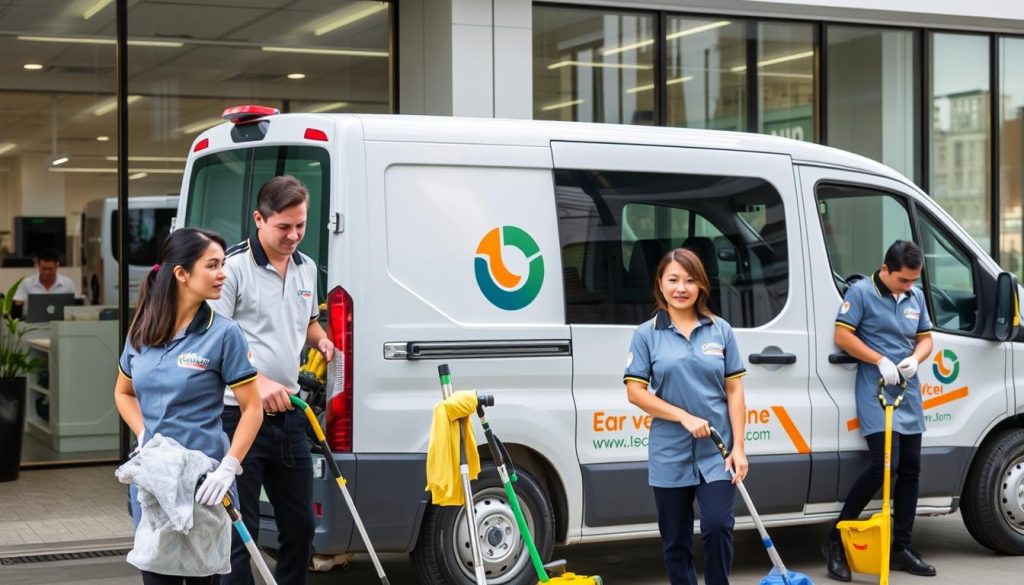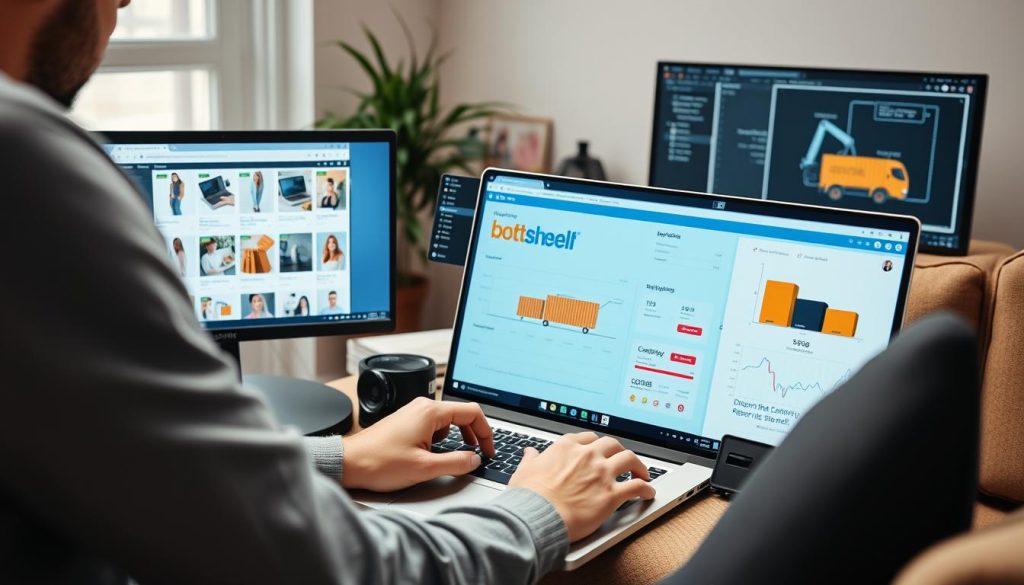America continues to be a land of opportunity for foreign entrepreneurs looking to establish profitable ventures. With its robust economy, diverse markets, and supportive business ecosystem, the United States offers numerous possibilities for non-citizens to build successful businesses. However, navigating the legal requirements, understanding market dynamics, and identifying the right opportunity can be challenging for foreigners. This comprehensive guide explores the top 10 small business ideas in America for foreigners, complete with detailed statistics, authentic reviews, and practical insights to help you make informed decisions.
Quick Comparison: Top 10 Small Business Ideas for Foreign Entrepreneurs
| Business Idea | Startup Cost Range | Avg. Monthly Revenue (2023) | Ease of Legal Process (1-5) | Target Audience |
| E-Commerce Distribution | $10K-$50K | $8K-$15K | 3 | Small Online Retailers |
| Ethnic Restaurant | $80K-$250K | $15K-$40K | 2 | Food Enthusiasts |
| Ethnic Grocery Store | $50K-$150K | $12K-$30K | 3 | Ethnic Communities |
| Translation Services | $2K-$10K | $5K-$12K | 4 | Businesses & Individuals |
| International Trade Consulting | $5K-$20K | $10K-$25K | 4 | Import/Export Businesses |
| Food Truck | $50K-$175K | $8K-$20K | 3 | Urban Professionals |
| Digital Marketing Agency | $5K-$25K | $8K-$30K | 4 | Small-Medium Businesses |
| Cleaning Services | $3K-$15K | $5K-$15K | 3 | Homes & Businesses |
| Beauty Salon/Spa | $40K-$150K | $10K-$25K | 3 | Style-Conscious Consumers |
| Dropshipping Business | $1K-$5K | $3K-$10K | 5 | Online Shoppers |
Note: The “Ease of Legal Process” rating (1-5) indicates how straightforward the legal setup is for foreign entrepreneurs, with 5 being the easiest. This considers visa requirements, licensing, and regulatory compliance.
1. E-Commerce Distribution Center

Features
- Licensing Requirements: Business license, seller’s permit, and possibly warehouse permits depending on location
- Niche Appeal: Serves the growing e-commerce market, especially small businesses lacking fulfillment infrastructure
- Scalability: Highly scalable with potential to expand services and warehouse space as client base grows
Stats
Rating Reviews
Pros & Cons
Pros
- Qualifies for E-2 treaty investor visa
- Growing market with e-commerce expansion
- Recurring revenue model
- Relatively straightforward operations
- Minimal cultural adaptation needed
Cons
- Significant initial capital investment
- Warehouse leasing complexities for non-residents
- Seasonal fluctuations in demand
- Increasing competition from large fulfillment networks
- Labor management challenges
Specifications
Minimum Investment: $50,000 (E-2 visa typically requires minimum $100,000 total investment)
Recommended Locations: Texas (Dallas, Houston), New Jersey, California (Los Angeles, Oakland), Ohio (Columbus)
Space Requirements: 2,000-10,000 sq ft warehouse initially
Tools/Tech Needed: Warehouse management system, inventory tracking software, shipping station equipment
Staff Requirements: 3-8 employees initially
Key Success Factors: Strategic location, efficient operations, competitive pricing, reliable delivery
Ready to Start Your E-Commerce Distribution Business?
Get expert guidance on business formation and visa requirements from specialized consultants.
2. Ethnic Restaurant

Features
- Licensing Requirements: Business license, food service permit, liquor license (if applicable), health department certification
- Niche Appeal: Authentic cuisine from your home country that may be underrepresented in the local market
- Scalability: Potential for multiple locations, catering services, packaged food products
Stats
Rating Reviews
Pros & Cons
Pros
- Strong qualification for E-2 visa
- Leverages cultural expertise and heritage
- Growing interest in authentic international cuisines
- Potential for strong community connections
- Multiple revenue streams possible
Cons
- High failure rate in restaurant industry
- Labor-intensive business model
- Complex health and safety regulations
- Significant competition in most markets
- Susceptible to economic downturns
Specifications
Minimum Investment: $150,000 (meets E-2 visa requirements)
Recommended Locations: New York City, Los Angeles, Chicago, Miami, Houston, San Francisco
Space Requirements: 1,500-3,000 sq ft restaurant space
Tools/Tech Needed: POS system, reservation software, kitchen equipment, online ordering platform
Staff Requirements: 8-15 employees (kitchen staff, servers, management)
Key Success Factors: Authentic cuisine, strategic location, efficient operations, strong marketing
Ready to Bring Your Culinary Heritage to America?
Get specialized guidance on restaurant business setup and visa requirements.
3. Ethnic Grocery Store

Features
- Licensing Requirements: Business license, food handler’s permit, retail food establishment license
- Niche Appeal: Serves immigrant communities and food enthusiasts seeking authentic international products
- Scalability: Potential for online sales, multiple locations, wholesale distribution
Stats
Rating Reviews
Pros & Cons
Pros
- Qualifies for E-2 visa with adequate investment
- Serves established ethnic communities
- Recurring customer base
- Cultural expertise provides competitive advantage
- Growing mainstream interest in international foods
Cons
- Complex import regulations for foreign foods
- Inventory management challenges
- Thin profit margins
- Competition from mainstream grocers expanding international sections
- Perishable inventory risks
Specifications
Minimum Investment: $100,000 (meets E-2 visa requirements)
Recommended Locations: Areas with established immigrant communities or diverse populations
Space Requirements: 2,000-5,000 sq ft retail space
Tools/Tech Needed: POS system, inventory management software, refrigeration equipment
Staff Requirements: 3-8 employees initially
Key Success Factors: Product authenticity, community engagement, efficient supply chain
Ready to Open Your Ethnic Grocery Store?
Get expert guidance on import regulations, business setup, and visa requirements.
4. Translation Services

Features
- Licensing Requirements: Business license, professional certification recommended but not required
- Niche Appeal: Leverages native language skills and cultural knowledge
- Scalability: Can expand from solo operation to agency model with multiple language specialists
Stats
Rating Reviews
Pros & Cons
Pros
- Low startup costs
- Can operate remotely/from home
- Leverages existing language skills
- High profit margins
- Multiple visa pathways (O-1, E-2 if structured as an agency)
Cons
- Challenging to qualify for E-2 visa as a solo translator
- Increasing competition from AI translation tools
- Requires building professional credibility
- Income can be inconsistent initially
- May require specialized knowledge for technical translations
Specifications
Minimum Investment: $5,000-$20,000 (higher investment needed for E-2 visa qualification)
Recommended Locations: Major business centers (NYC, LA, Chicago, Miami) or remote operation
Space Requirements: Home office or small commercial space
Tools/Tech Needed: Translation software, CAT tools, video conferencing equipment
Staff Requirements: Solo operation initially, potential to hire additional translators
Key Success Factors: Language expertise, specialization, professional certification, networking
Turn Your Language Skills into a Profitable Business
Get expert guidance on establishing your translation service and navigating visa options.
5. International Trade Consulting

Features
- Licensing Requirements: Business license, professional certifications recommended
- Niche Appeal: Leverages knowledge of home country markets and US trade regulations
- Scalability: Can expand from individual consulting to full-service agency
Stats
Rating Reviews
Pros & Cons
Pros
- Leverages international experience and connections
- High profit margins
- Low overhead costs
- Growing demand due to changing trade regulations
- Potential for O-1 or E-2 visa qualification
Cons
- Requires extensive knowledge of US trade regulations
- Challenging to build credibility initially
- May require significant networking to acquire clients
- Need to constantly update knowledge of changing regulations
- E-2 visa requires substantial business structure
Specifications
Minimum Investment: $15,000-$50,000 (higher for E-2 visa qualification)
Recommended Locations: Major trade hubs (NYC, LA, Miami, Houston, Seattle)
Space Requirements: Home office or small commercial space
Tools/Tech Needed: Trade database subscriptions, CRM software, video conferencing tools
Staff Requirements: Solo operation initially, potential to hire specialists
Key Success Factors: Specialized knowledge, strong network, professional credentials
Launch Your International Trade Consulting Business
Get expert guidance on business setup and visa options for trade consultants.
6. Food Truck Business

Features
- Licensing Requirements: Business license, food handler’s permit, mobile food vendor permit, health department certification
- Niche Appeal: Introduces authentic international cuisine with lower startup costs than a restaurant
- Scalability: Potential for multiple trucks, catering services, packaged food products
Stats
Rating Reviews
Pros & Cons
Pros
- Lower startup costs than a restaurant
- Qualifies for E-2 visa with adequate investment
- Mobility to test different locations
- Leverages culinary heritage
- Strong social media marketing potential
Cons
- Complex and varying local regulations
- Weather dependency
- Limited operating hours/seasons in some locations
- Vehicle maintenance costs
- Competitive market in popular areas
Specifications
Minimum Investment: $75,000-$150,000 (meets E-2 visa requirements)
Recommended Locations: Austin, Portland, Los Angeles, Miami, Seattle, New York City
Space Requirements: Food truck (150-200 sq ft), commissary kitchen access
Tools/Tech Needed: Mobile POS system, food preparation equipment, social media presence
Staff Requirements: 2-4 employees initially
Key Success Factors: Unique menu, strategic locations, strong branding, social media presence
Ready to Start Your Food Truck Business?
Get expert guidance on permits, locations, and visa requirements.
7. Digital Marketing Agency

Features
- Licensing Requirements: Business license, no special permits required
- Niche Appeal: Specializing in cross-cultural marketing or serving businesses from your home country
- Scalability: Highly scalable from solo consultant to full-service agency
Stats
Rating Reviews
Pros & Cons
Pros
- Low startup costs
- Can operate remotely initially
- Leverages cross-cultural knowledge
- High profit margins
- Growing demand for digital marketing services
Cons
- Challenging to qualify for E-2 visa without substantial structure
- Highly competitive market
- Requires staying current with rapidly changing platforms
- Client acquisition can be challenging initially
- May require US-specific marketing knowledge
Specifications
Minimum Investment: $10,000-$50,000 (higher for E-2 visa qualification)
Recommended Locations: Major business centers or remote operation
Space Requirements: Home office or small commercial space
Tools/Tech Needed: Marketing software subscriptions, analytics tools, design software
Staff Requirements: Solo operation initially, potential to hire specialists
Key Success Factors: Specialized expertise, strong portfolio, networking, results-driven approach
Launch Your Digital Marketing Agency in the US
Get expert guidance on business formation and visa options for marketing professionals.
8. Cleaning Services

Features
- Licensing Requirements: Business license, bonding and insurance
- Niche Appeal: Essential service with recurring revenue potential
- Scalability: Can expand from solo operation to team-based service covering residential and commercial clients
Stats
Rating Reviews
Pros & Cons
Pros
- Low initial startup costs
- Recurring revenue model
- Minimal technical skills required
- Can qualify for E-2 visa with proper business structure
- Essential service with consistent demand
Cons
- Labor-intensive business model
- Employee recruitment and retention challenges
- Competitive market in most areas
- Requires proper insurance and bonding
- May face price competition from informal providers
Specifications
Minimum Investment: $10,000-$50,000 (higher for E-2 visa qualification)
Recommended Locations: Growing urban and suburban areas nationwide
Space Requirements: Home office initially, potential small commercial space later
Tools/Tech Needed: Cleaning equipment, scheduling software, transportation
Staff Requirements: Solo operation initially, expanding to team as business grows
Key Success Factors: Reliability, quality service, proper insurance, specialized offerings
Start Your Cleaning Business in America
Get expert guidance on business setup, insurance requirements, and visa options.
9. Beauty Salon/Spa

Features
- Licensing Requirements: Business license, cosmetology licenses, health department permits
- Niche Appeal: Can specialize in treatments or techniques from your home country
- Scalability: Potential for multiple locations, product lines, training programs
Stats
Rating Reviews
Pros & Cons
Pros
- Strong qualification for E-2 visa
- Opportunity to introduce unique treatments
- Recurring client base
- Multiple revenue streams (services, products, memberships)
- Strong social media marketing potential
Cons
- Significant initial investment
- Complex licensing requirements
- Staff recruitment and retention challenges
- Competitive market in most areas
- Requires physical presence for management
Specifications
Minimum Investment: $100,000-$250,000 (meets E-2 visa requirements)
Recommended Locations: Urban areas with diverse populations, affluent suburbs
Space Requirements: 1,000-2,500 sq ft commercial space
Tools/Tech Needed: Salon equipment, booking software, POS system
Staff Requirements: 5-10 employees initially
Key Success Factors: Unique services, skilled staff, attractive ambiance, strong marketing
Open Your Beauty Salon or Spa in America
Get expert guidance on licensing, location selection, and visa requirements.
10. Dropshipping Business

Features
- Licensing Requirements: Business license, seller’s permit
- Niche Appeal: Can specialize in products from your home country or cultural niche
- Scalability: Highly scalable with minimal additional investment
Stats
Rating Reviews
Pros & Cons
Pros
- Minimal startup costs
- Can operate remotely
- No inventory management
- Easy to test different products
- Flexible business model
Cons
- Difficult to qualify for business visas
- Lower profit margins than other models
- Dependent on suppliers
- Highly competitive market
- Limited control over product quality and shipping
Specifications
Minimum Investment: $3,000-$10,000 (insufficient for most visa programs)
Recommended Locations: Can operate remotely from anywhere
Space Requirements: Home office or co-working space
Tools/Tech Needed: E-commerce platform, marketing tools, supplier management software
Staff Requirements: Solo operation initially, potential to hire for customer service and marketing
Key Success Factors: Niche selection, supplier relationships, marketing strategy, customer service
Launch Your Dropshipping Business
Get expert guidance on e-commerce setup and alternative visa pathways.
Legal Considerations for Foreign Entrepreneurs

Visa Options for Business Owners
- E-2 Treaty Investor Visa: For nationals of treaty countries investing a “substantial amount” in a US business (typically $100,000+)
- L-1 Intracompany Transferee: For executives or managers transferring from a foreign company to its US affiliate
- EB-5 Immigrant Investor: Requires $800,000-$1,050,000 investment and creation of 10 full-time jobs
- O-1 Extraordinary Ability: For individuals with exceptional skills in business, arts, sciences, etc.
Business Formation Requirements
Entity Types: LLC, Corporation, Partnership
Documentation: Articles of organization/incorporation, EIN, operating agreement
Banking: Business bank account (may require physical presence)
Taxation: Federal, state, and local tax obligations
Insurance: General liability, workers’ compensation, professional liability
Compliance: Industry-specific regulations and reporting requirements
Important: Immigration and business laws are complex and subject to change. Always consult with qualified immigration attorneys and business advisors before making investment decisions or applying for visas.
Get Expert Legal Guidance
Schedule a consultation with immigration attorneys specializing in business visas for foreign entrepreneurs.
Conclusion: Your Path to American Entrepreneurship

Starting a business in America as a foreigner presents both exciting opportunities and unique challenges. The top 10 small business ideas we’ve explored offer varying levels of investment requirements, profit potential, and visa compatibility. When selecting the right business for you, consider not only the market potential but also how your skills, experience, and cultural background can provide a competitive advantage.
Remember that success in the American market requires thorough research, proper legal guidance, and a willingness to adapt to local business practices. Many successful foreign entrepreneurs have found that combining their unique international perspective with American business methods creates innovative ventures that stand out in the marketplace.
Whether you’re drawn to the hands-on experience of running a restaurant or food truck, the analytical work of international trade consulting, or the digital landscape of e-commerce and marketing, there’s a business model that can align with your goals and visa requirements. The key is to start with proper planning, secure appropriate legal guidance, and approach your entrepreneurial journey with both passion and pragmatism.
Ready to Start Your American Business Journey?
Get comprehensive guidance on business formation, visa options, and market entry strategies.
Disclaimer: This article provides general information and should not be construed as legal, financial, or immigration advice. Business regulations and visa requirements vary by location and change over time. Always consult with qualified professionals before making business or immigration decisions.







